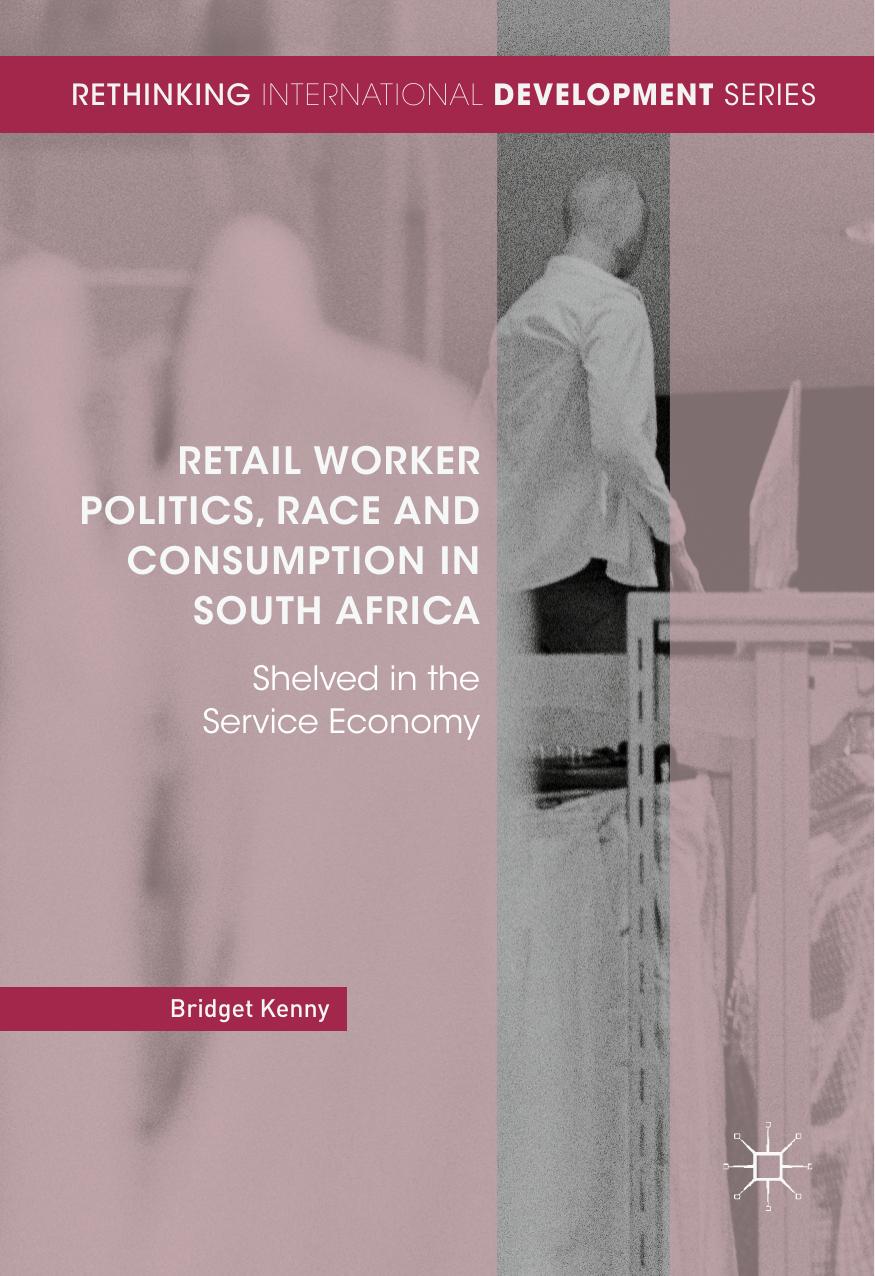Retail Worker Politics, Race and Consumption in South Africa by Bridget Kenny

Author:Bridget Kenny
Language: eng
Format: epub, pdf
Publisher: Springer International Publishing, Cham
These workers said that Shoprite also halted workers’ ability to leverage their jobs to obtain bank loans, and ended job benefits, such as family bursaries and company loans, which the union had put into place. Permanent workers had used these methods to finance their children’s education , to build up financial security, and to meet their social obligations.56 Kethiwe’s description above shows how Shoprite’s austerity broke with Hyperama’s practices that had enabled workers actively to construct their social worlds.57
This discourse reverberates with the concept of “moral economy” in which workers asserted claims of (past) obligations to push back against dislocations caused by capitalism (Thompson 1971).58 In his study of mineworkers in South Africa, Dunbar Moodie (Moodie and Ndatshe 1994) applies moral economy to describe the agreed-upon rules of engagement between workers and management that predict expectations of obligation from management and tolerance of certain forms of worker resistance.59 His use of moral economy stresses the interactive (and instrumental) negotiations between workers and managers explained in part by workers’ subordinate position. Instead, in thinking about retail workers’ narratives, I follow William Roseberry (1989, 57) to focus on how relations described in terms of a “moral economy” are “perceived [to be] in the past from the perspective of a disordered present.”60 Thus, recourse to a discourse of past relations, represented under the sign of “Hyperama,” where obligations were met and abided by, signifies not so much the authenticity of that prior reciprocity, nor the terms of brokered relationships, nor even the ability to instantiate these rules of obligation, but rather the crux of what is experienced as most egregious in the present. As Hall (1985) might put it, it becomes necessary to explain the conjuncture, the appeal – in our case of a language of relationship, which insists on a version of workers as political subjects, where they have effect – at this moment of change. Thus, the language used to describe the phenomenon of “restructuring” discloses discursive framings, conditioning forms of action and thus processes of subjectification .
These retail workers employed a language of reciprocal obligation with managers when their “disordered present” made a union-backed order securing communication and respect increasingly ineffectual (see also Collins 2003, 102). In short their discourse of “moral economy” did not hark back to authentic historical and cultural relations of trust per se, but pointed to a moment when this possibility was altered. Permanent retail workers’ claim to a moral economy denoted a betrayal, posed in terms of a notion of national belonging in post-apartheid South Africa and in terms of the ability to have effect on their concrete relations. The “union” was a shorthand for the possibility of maintaining an active engagement in a set of relations which coalesced around the political subject of “workers .”
It was management that subverted these relations in these narratives. Kethiwe and many other permanent workers used the imagery of predation to describe how Shoprite was “eating” [adliwe wuye in isiZulu] their benefits.61 The metaphor of “eating” denotes the absorption of an individual’s autonomy and power through political, economic, and ritual means.
Download
Retail Worker Politics, Race and Consumption in South Africa by Bridget Kenny.pdf
This site does not store any files on its server. We only index and link to content provided by other sites. Please contact the content providers to delete copyright contents if any and email us, we'll remove relevant links or contents immediately.
International Integration of the Brazilian Economy by Elias C. Grivoyannis(57328)
The Radium Girls by Kate Moore(10908)
Turbulence by E. J. Noyes(7040)
Nudge - Improving Decisions about Health, Wealth, and Happiness by Thaler Sunstein(6634)
The Black Swan by Nassim Nicholas Taleb(6192)
Pioneering Portfolio Management by David F. Swensen(5606)
Rich Dad Poor Dad by Robert T. Kiyosaki(5150)
Zero to One by Peter Thiel(4824)
Man-made Catastrophes and Risk Information Concealment by Dmitry Chernov & Didier Sornette(4738)
Secrecy World by Jake Bernstein(3783)
Millionaire: The Philanderer, Gambler, and Duelist Who Invented Modern Finance by Janet Gleeson(3569)
Skin in the Game by Nassim Nicholas Taleb(3462)
The Age of Surveillance Capitalism by Shoshana Zuboff(3423)
The Money Culture by Michael Lewis(3284)
Skin in the Game: Hidden Asymmetries in Daily Life by Nassim Nicholas Taleb(3264)
Bullshit Jobs by David Graeber(3180)
The Dhandho Investor by Mohnish Pabrai(3169)
The Wisdom of Finance by Mihir Desai(3079)
Blockchain Basics by Daniel Drescher(2891)
